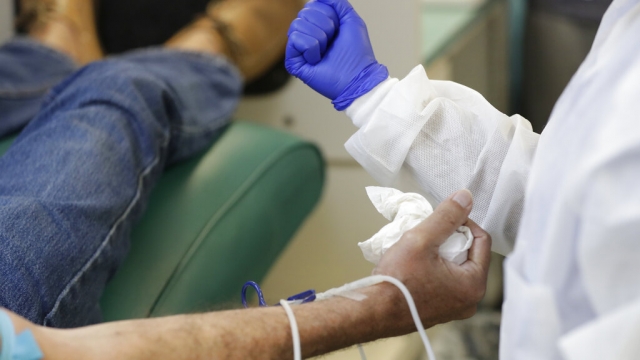The quiet hum of medical equipment is the soundtrack to a busy blood donation day. Right now, blood banks in short supply can use all the donations they can get.
"Right now it's about a four-day supply," said Kevin Adler, Vitalant West Coast communications manager.
Vitalant has about 200 donation centers across the U.S. They're ready to change with new FDA guidelines for donor assessment.
Regulators keep the blood supply safe and healthy by testing donations and screening donors with a set of questions.
With the old screening, men who have sex with men had to abstain for three months to be eligible to donate. New screening questions focus on sexual history, and everyone gets asked the same questions.
Those on PEP or PrEP meds can't donate for three months. The medicines dramatically reduce viral load, making it harder to detect.
"Part of FDA's concern about not allowing donors on PEP or PrEP is because when you're doing the testing, we're testing a fraction of a milliliter. When you're transfusing, you're transfusing up to 500 mils, which is more than a pint, so three orders of magnitude more volume. And just because it's not present in 50 or 100 microliters doesn't mean it isn't present in the entire bag," said Dr. Jed Gorlin, chief medical officer of America's Blood Centers.
SEE MORE: FDA changes blood donor rules for gay and heterosexual donors
In the new screenings, every person will be asked if they've sex with new or multiple partners in the last three months, and a follow-up asking if they've had anal sex. If they say yes to both questions, that donor would be ruled out. But if you go through a screening right now, you'll still see the old questions, which ask only males "in the past 3 months, have you had sex with another male?"
Blood donation centers right now are working through the logistics, updating computer screening programs and retraining their staff.
"We have over 1,500 staff across the country that have to be well versed in what's going on because they have to follow the procedures precisely because we are a regulated industry," Adler said.
Experts predict it will take three to six months for that to happen.
The Red Cross says only 3% of Americans donate blood. Those donations can help with blood transfusions for cancer patients who need more red blood cells after chemotherapy, in labor and delivery patients, or for trauma patients.
Meanwhile, experts say the wait for the rule change can't end soon enough. It's a time of year when schools will soon be on summer vacation and fixed blood drives aren't as common.
"We've completely depended over the last three years on our fixed site donors, and to be honest, we're burning them out. And frankly, a lot of them look like me. We have an aging donor population," Gorlin said.
According to Tufts Medical Center, the chance of getting an HIV infection from a blood transfusion is less than 1 in about 2 million. There has not been an HIV infection from a blood transfusion since 2008.
Trending stories at Scrippsnews.com



